Case Study: Water Quality Cooperation in the Danube Region – A Hungarian Perspective
by Zsuzsanna Kocsis-Kupper, Danube Region Strategy, Priority Area Water Quality Coordination Team
Cooperation on the Danube is continuous at a number of levels, with data collection and information exchange, the establishment of early warning systems, monitoring of water quality and a uniform methodology on emissions data; the joint setting up of project proposals and assisting in financing: all of these actions have served to mitigate the adverse impact on ecosystems across the basin.
This Danube case study from a Hungarian perspective is a positive example of how nested legal and institutional frameworks can merge into effective cooperation activities under key agreed objectives in relation to water quality.
The need for clean drinking water, the threat of floods and the risk of water scarcity or industrial spills are everyday problems which influence the life of citizens living in the region. It is the intent of Hungary to strengthen regional cooperation further in this area and to play a central role in the framework of a constructive partnership in the EU Strategy for the Danube Region (EUSDR) and its Priority Areas for Water Quality (PA4) and Environmental Risks (PA5).
Read the full study here: Case Study: Water Quality Cooperation in the Danube Region – A Hungarian Perspective

